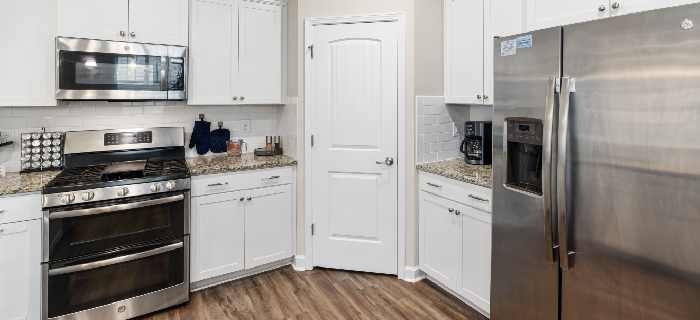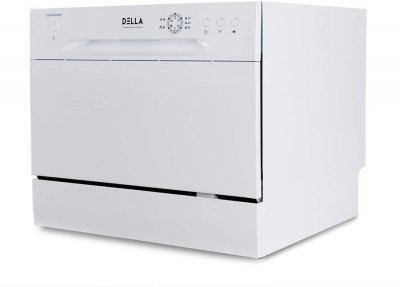When it comes to homeownership, unexpected repairs and breakdowns can be a major headache. That’s why many homeowners opt to purchase a home warranty to help cover the cost of unexpected repairs and replacements. But what exactly do home warranties cover? In this article, we’ll take a closer look at what home warranties cover, how they work, and whether they’re worth the investment.
Homeownership can come with many unexpected expenses, especially when it comes to repairs and replacements. A home warranty is one way to help ease the burden of these unexpected costs. But what exactly do home warranties cover, and are they worth the investment? In this article, we’ll answer these questions and more.
Table of Contents
What Is a Home Warranty?
A home warranty is a service contract that covers the cost of repairs or replacements for major home systems and appliances. Unlike homeowners insurance, which covers damage caused by unexpected events such as fires or natural disasters, home warranties cover the cost of repairs or replacements due to normal wear and tear.
How Do Home Warranties Work?
When you purchase a home warranty, you’ll typically pay an annual fee, which can range from a few hundred dollars to over a thousand dollars, depending on the level of coverage you choose. If a covered item breaks down or stops working properly, you’ll contact your home warranty provider, who will dispatch a licensed and insured service provider to diagnose and repair or replace the item.
What Do Home Warranties Cover?
Home warranties can cover a wide range of items, including appliances, HVAC systems, plumbing systems, electrical systems, and more. Let’s take a closer look at what’s typically covered under a home warranty.
Appliances
Home warranties can cover a variety of appliances, including:
- Refrigerators
- Dishwashers
- Ovens and ranges
- Cooktops
- Microwaves
- Washers and dryers
- Garage door openers
HVAC systems
Home warranties can also cover HVAC systems, including:
- Air conditioning units
- Heating systems
- Ductwork
Plumbing systems
Plumbing systems that may be covered under a home warranty include:
- Water heaters
- Plumbing lines and fixtures
- Sewer lines
Electrical systems
Electrical systems that may be covered under a home warranty include:
- Electrical panels
- Wiring and outlets
- Ceiling fans
Other items
In addition to the items listed above, some home warranties may also cover:
- Pool and spa equipment
- Well pumps
- Septic systems
What’s Not Covered by a Home Warranty?
While home warranties can be a great way to cover the cost of unexpected repairs and replacements,
While home warranties can be a great way to cover the cost of unexpected repairs and replacements, there are some things that are typically not covered by a home warranty. These may include:
- Pre-existing conditions or known issues
- Items that have not been properly maintained
- Cosmetic or aesthetic issues
- Acts of nature, such as floods or earthquakes
- Appliances or systems that are still covered under a manufacturer’s warranty
- Upgrades or modifications to existing systems or appliances
It’s important to carefully read the terms and conditions of your home warranty to understand exactly what is and isn’t covered.
Pros and Cons of Home Warranties
Like any type of insurance or service contract, there are pros and cons to purchasing a home warranty.
Pros
- Provides peace of mind in the event of unexpected repairs or replacements
- Can help you budget for home repairs and replacements
- May provide access to qualified service providers
- Can be a selling point when you sell your home
Cons
- Can be expensive, especially if you choose a high level of coverage
- May not cover all repairs or replacements
- May have deductibles or service fees
- May not cover pre-existing conditions or known issues

Is a Home Warranty Worth the Investment?
Whether or not a home warranty is worth the investment depends on your individual circumstances. If you have older appliances or systems that are more likely to break down, or if you want the peace of mind that comes with knowing unexpected repairs and replacements are covered, a home warranty may be a good investment for you. On the other hand, if you have newer appliances or systems, or if you have a healthy emergency fund to cover unexpected repairs, a home warranty may not be necessary.
How to Choose a Home Warranty Provider
If you decide that a home warranty is right for you, it’s important to choose a reputable provider. Here are some tips for choosing a home warranty provider:
- Research multiple providers and compare their coverage, prices, and customer reviews
- Check the provider’s rating with the Better Business Bureau
- Look for a provider that offers a clear and comprehensive contract
- Ask about any deductibles or service fees
- Make sure the provider is licensed and insured
Frequently Asked Questions
1. Do I Need a Home Warranty If I Have Homeowners Insurance?
Homeowners insurance and home warranties cover different things. Homeowners insurance typically covers damage caused by unexpected events, such as fires or natural disasters, while home warranties cover the cost of repairs or replacements due to normal wear and tear. While homeowners insurance is typically required by mortgage lenders, a home warranty is optional.
2. What’s the Difference Between a Home Warranty and Homeowners Insurance?
As mentioned above, homeowners insurance typically covers damage caused by unexpected events, while home warranties cover the cost of repairs or replacements due to normal wear and tear. Homeowners insurance is typically required by mortgage lenders, while a home warranty is optional.
3. Can I Choose My Own Service Provider with a Home Warranty?
It depends on the home warranty provider. Some providers have a network of approved service providers that you must use, while others allow you to choose your own service provider as long as they are licensed and insured.
4. How Much Does a Home Warranty Cost?
The cost of a home warranty can vary widely depending on the level of coverage you choose and the provider you choose. Expect to pay a few hundred to over a thousand dollars per year for a home warranty.
5. How Long Does a Home Warranty Last?
Home warranties typically last one year, but some providers offer longer-term contracts.
Conclusion
Home warranties can be a great way to cover the cost of unexpected repairs
and replacements in your home. However, it’s important to understand what is and isn’t covered by a home warranty, as well as the pros and cons of purchasing one. Carefully read the terms and conditions of any home warranty you’re considering, and compare multiple providers to ensure you’re getting the best coverage at the best price.
If you have older appliances or systems that are more likely to break down, or if you want the peace of mind that comes with knowing unexpected repairs and replacements are covered, a home warranty may be a good investment for you. On the other hand, if you have newer appliances or systems, or if you have a healthy emergency fund to cover unexpected repairs, a home warranty may not be necessary.
Ultimately, the decision to purchase a home warranty is a personal one that depends on your individual circumstances. Just be sure to do your research and choose a reputable provider if you decide to purchase one.

